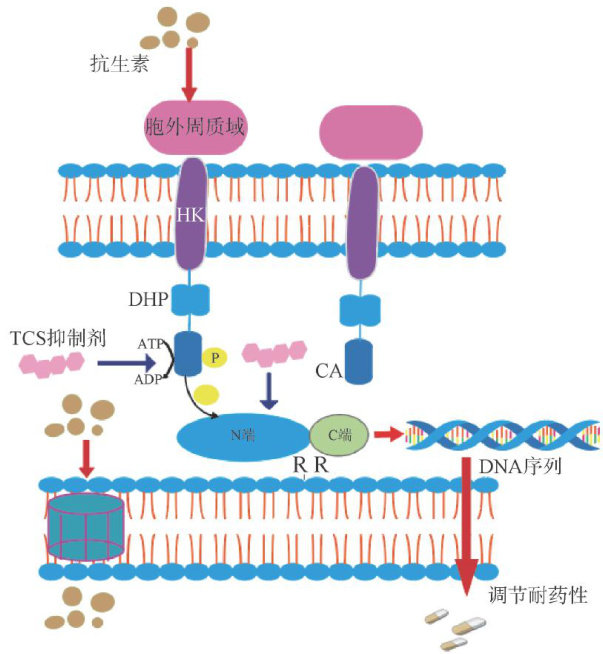细菌双组分系统的耐药性及致病性研究进展


打开文本图片集
中图分类号:S852.61 文献标志码:A 文章编号:0366-6964(2025)07-3116-13
Abstract: The bacterial two-component system (TCS) is a widespread signaling transduction pathway in organisms,which can sense and respond to physical,chemical,and biological stimuli inside and outside the cell,and induce a series of cellular responses through coupled sensing and regulatory mechanisms. TCS is the principal mechanism for bacteria to sense and respond to environmental signals and regulate physiological behaviors,which plays a crucial role in bacterial drug resistance, pathogenicity, biofilm formation,virulence factor regulation,etc. TCS regulates gene expression and cellular behaviors through the interactions of the two components (sensors and effectors) to handle the impact of adverse environment on bacteria,therefore achieving the goal of proliferation and invasion of the host. This paper reviews the research advances in the structure, function, drug resistance regulation and pathogenicity,and inhibitors of the twocomponent system,providing a reference for the development of novel antimicrobial drugs and bacterial prevention and control.
Keywords: two-component system;structure; function;drug resistance; pathogenicity ∗ Corresponding author: LI Lin,E-mail:lilinah@126.com
细菌耐药性已经成为全球公共卫生面临的一大难题,世界卫生组织(WHO)将抗生素耐药性列为全球十大公共卫生挑战之一。(剩余29487字)